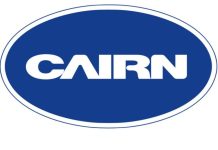Lummus Technology and Next Wave Energy Partners, LP (Next Wave) announced the production of renewable alkylate. The renewable alkylate, derived from ethanol and produced through a series of Lummus’ technologies, is a bio-based, low carbon intensity fuel blending component.
“The achievement continues Lummus’ success in innovating and developing breakthrough technologies that propel our industry forward,” said Leon de Bruyn, President and Chief Executive Officer, Lummus Technology.
Bruyn added, “The success of renewable alkylate production holds strategic significance for our customers, partners and the industry at large as we shift towards more eco-friendly and efficient chemical processes”.
“The production of renewable alkylate, a drop-in blending component with 30% lower carbon intensity than traditional gasoline, is a major breakthrough for our industry and an important milestone in the development of Next Wave’s Project Lightning,” said Michael Bloesch, Next Wave President and Chief Executive Officer.
Bloesch added, “Project Lightning can enhance the capabilities and optionality of our existing ethylene-to-alkylate facility by enabling the world-scale conversion of ethanol into renewable alkylate, sustainable aviation fuel (SAF), and carbon negative, polymer grade ethylene — all from the same flexible production unit.”
Working together, Next Wave and Lummus began by taking green ethylene produced from ethanol using the EtE EverGreen™ technology. The green ethylene was then shipped to Lummus’ research and development centre in Pasadena, Texas, where it was processed in multiple pilot plants and converted into the renewable alkylate.
Next Wave then conducted extensive engine and emissions testing on the renewable alkylate to ensure performance and verify the expected carbon intensity. As per the press release, in addition, Next Wave is submitting a fuel registration to the U.S. Environmental Protection Agency (EPA) for gasoline with up to 79% of renewable alkylate content under 40 CFR Part 79.
































